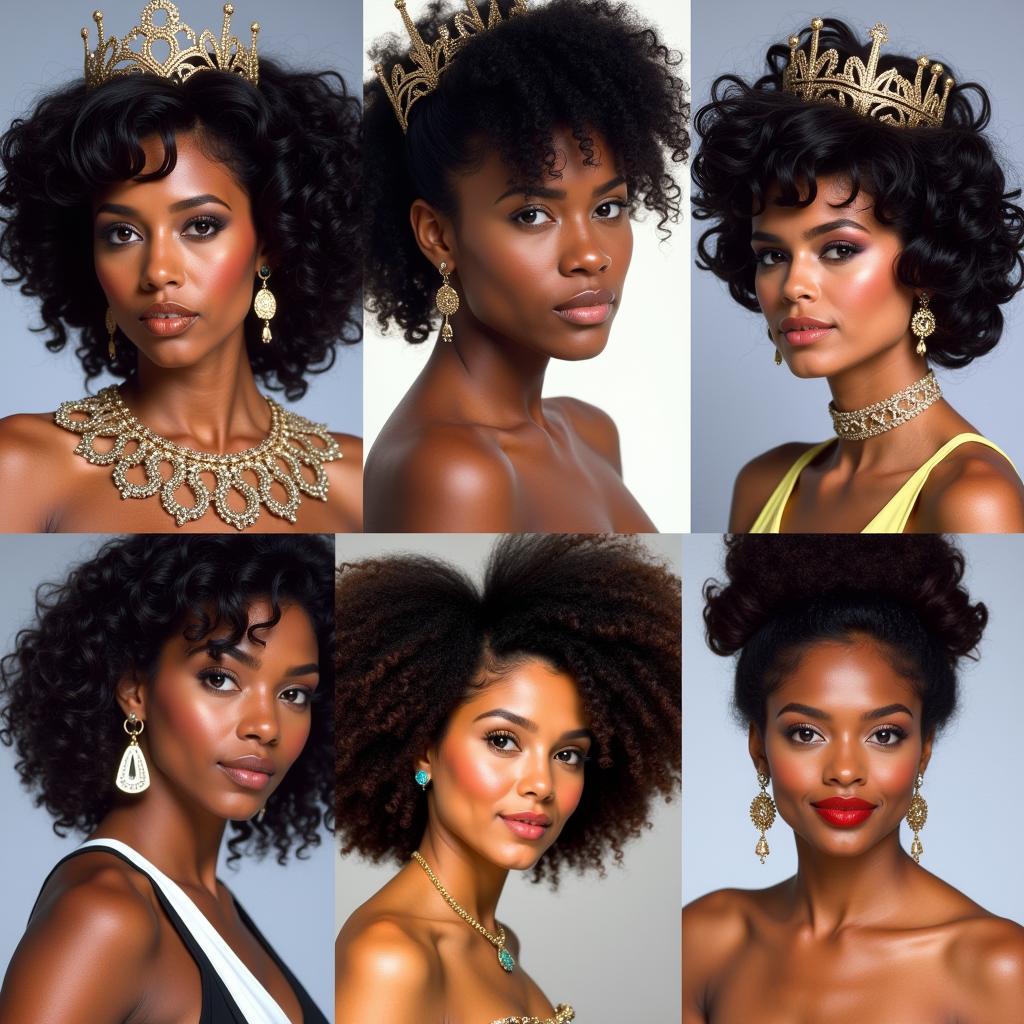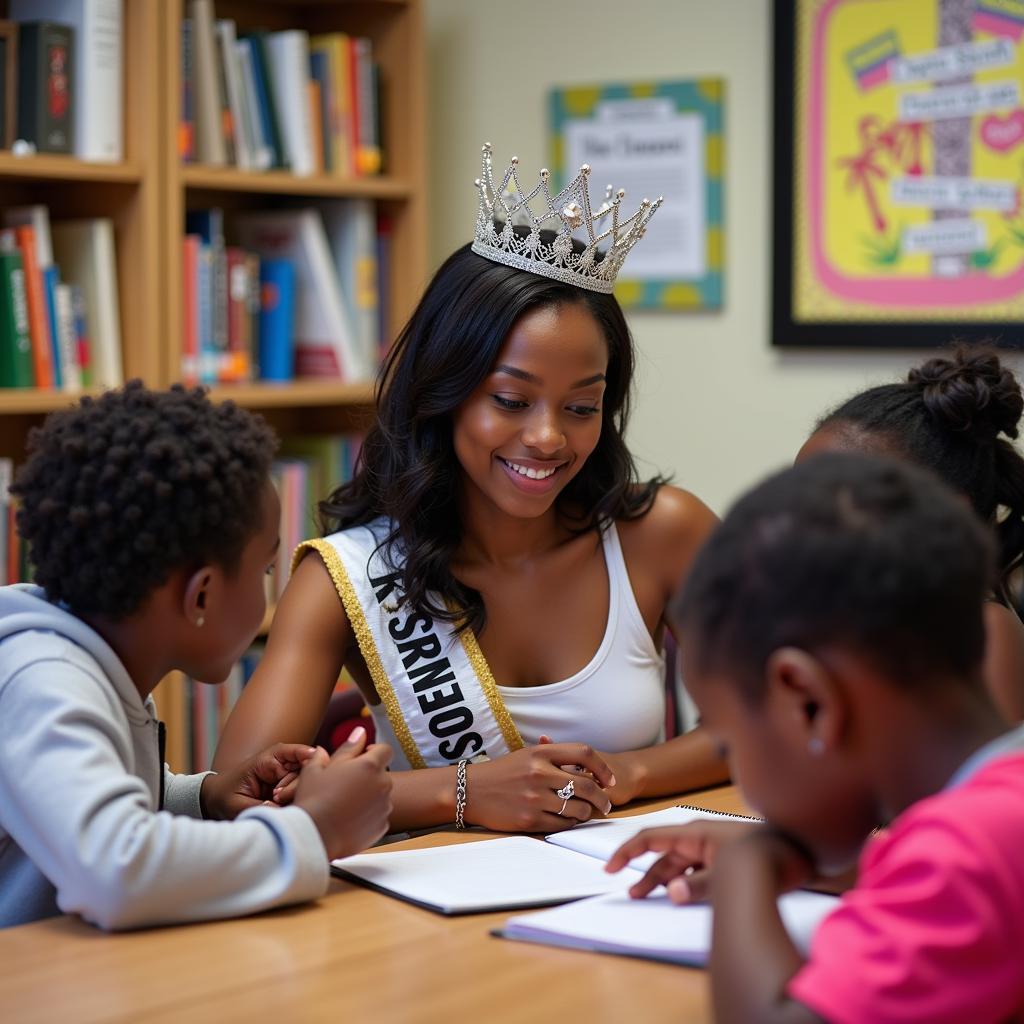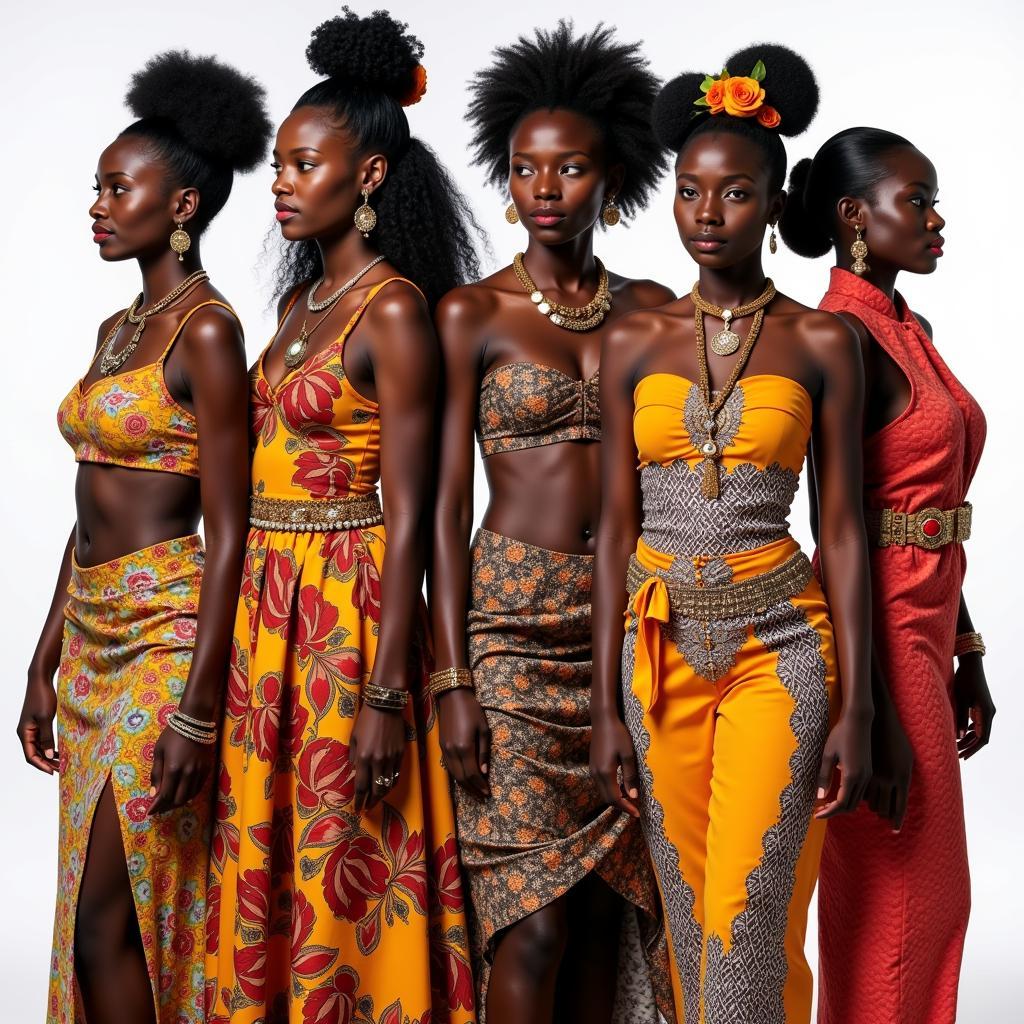African American Beauty Pageants: A Celebration of Beauty, Culture, and Empowerment
African American Beauty Pageants have a rich and complex history, serving as platforms for Black women to showcase their beauty, talent, and intellect while challenging societal norms and celebrating their heritage. These pageants have evolved over the years, reflecting the changing landscape of beauty standards and social progress within the African American community.
 African American Beauty Queens through the Years
African American Beauty Queens through the Years
The Genesis of Representation: Challenging Eurocentric Beauty Standards
The origins of African American beauty pageants can be traced back to the early 20th century, during a time when racial segregation was prevalent in the United States. Black women were largely excluded from mainstream beauty contests, which often upheld Eurocentric beauty standards that prioritized fair skin, blonde hair, and blue eyes. In response to this exclusion and misrepresentation, African Americans began organizing their own pageants, creating spaces where Black women could celebrate their beauty and challenge the narrow definitions imposed by society.
These early pageants were not merely about aesthetics; they were powerful acts of resistance and self-affirmation. By crowning their own queens, African Americans asserted their agency, redefined beauty on their own terms, and celebrated the diversity and richness of Black womanhood.
More Than a Crown: Platforms for Advocacy and Social Change
African American beauty pageants have consistently served as platforms for advocacy and social change. Winners often use their visibility and influence to raise awareness about issues affecting the Black community, such as racial injustice, healthcare disparities, and educational inequality. They become role models for young girls, demonstrating that Black women can be beautiful, intelligent, and socially conscious leaders.
“These pageants are about so much more than just a crown,” says Dr. Anika Johnson, a scholar specializing in African American history and culture. “They are spaces where Black women can amplify their voices, challenge stereotypes, and inspire future generations.”
 African American Beauty Queen Engaging in Community Outreach
African American Beauty Queen Engaging in Community Outreach
Evolution and Diversification: Embracing the Multiplicity of Black Beauty
Over the decades, African American beauty pageants have continued to evolve, reflecting the changing dynamics within the Black community and broader society. While some pageants maintain a traditional format, others have embraced innovation, incorporating elements of cultural performance, spoken word poetry, and entrepreneurial initiatives. This diversification reflects the multifaceted nature of Black womanhood and challenges the notion of a singular ideal of beauty.
Moreover, the rise of social media has provided African American beauty queens with unprecedented platforms to connect with audiences, share their stories, and advocate for causes they are passionate about. They have become influential figures in online spaces, using their voices to spark conversations, challenge injustices, and inspire change.
African American Beauty Pageants Today: A Legacy of Empowerment
Today, African American beauty pageants continue to be important cultural events, celebrating the beauty, intelligence, and resilience of Black women. They serve as reminders of the importance of representation, self-love, and the ongoing pursuit of equality and justice.
african americans to be crowned miss america represent a significant milestone in the journey towards greater inclusion and representation in the world of beauty pageants. The increasing visibility of Black women in these spaces challenges traditional beauty norms and paves the way for a more diverse and inclusive future. Similarly, the emergence of african american male peageant provides platforms for Black men to showcase their talents and challenge societal expectations of masculinity.
These pageants are not just about winning a crown; they are about celebrating the rich tapestry of Black experiences, inspiring future generations, and continuing the legacy of empowerment that has been woven into the fabric of these competitions from their very inception.


